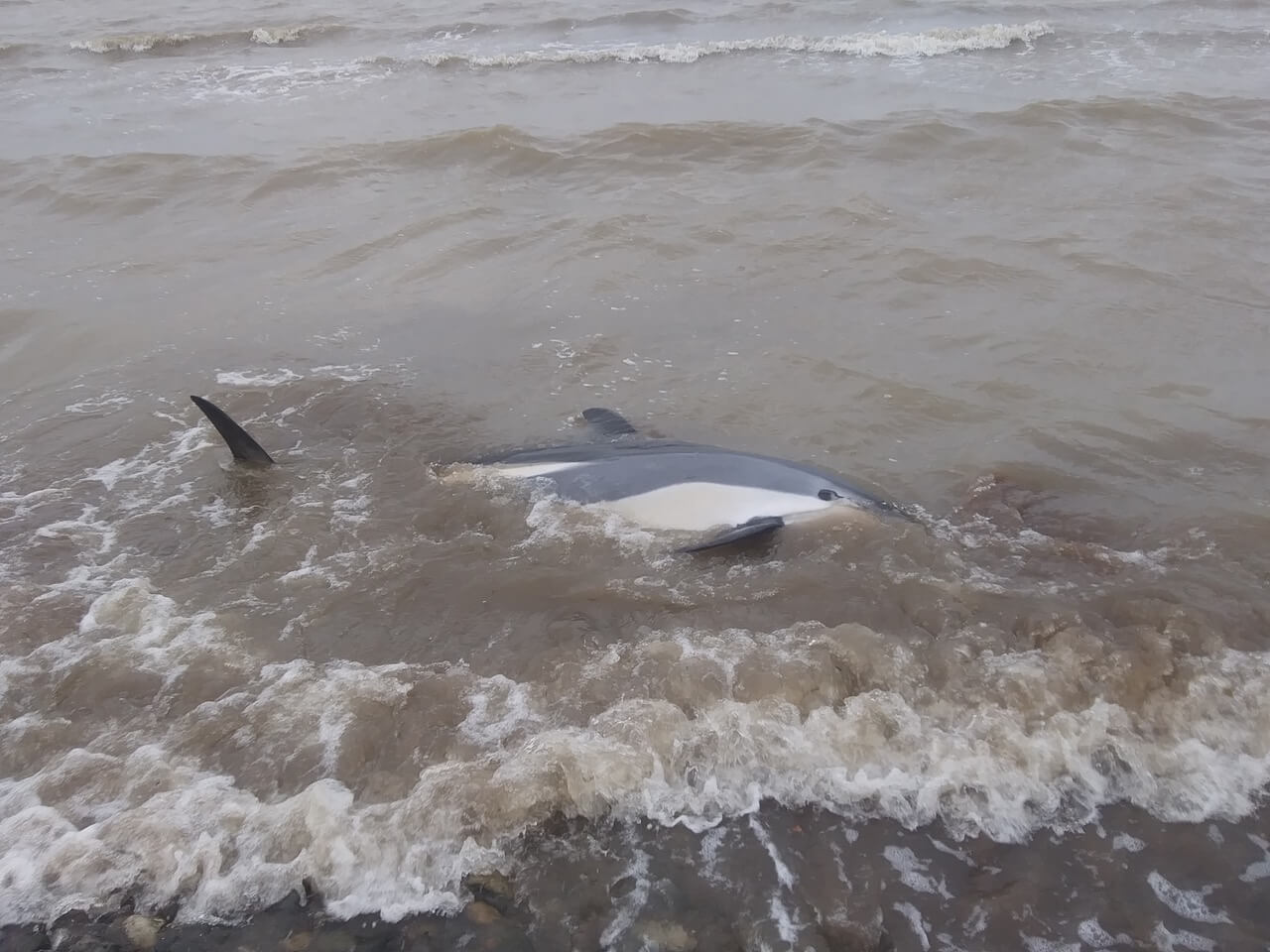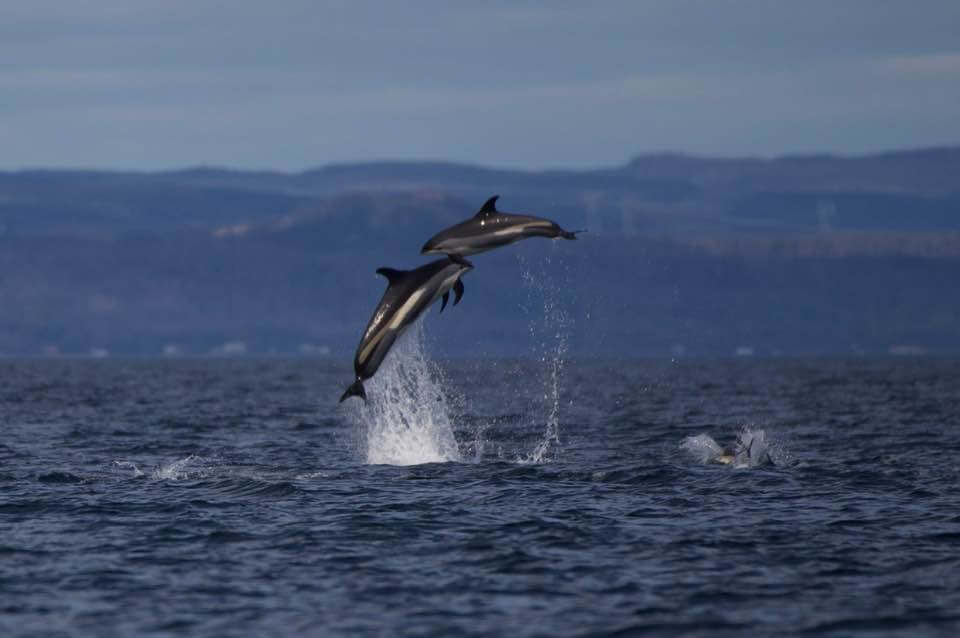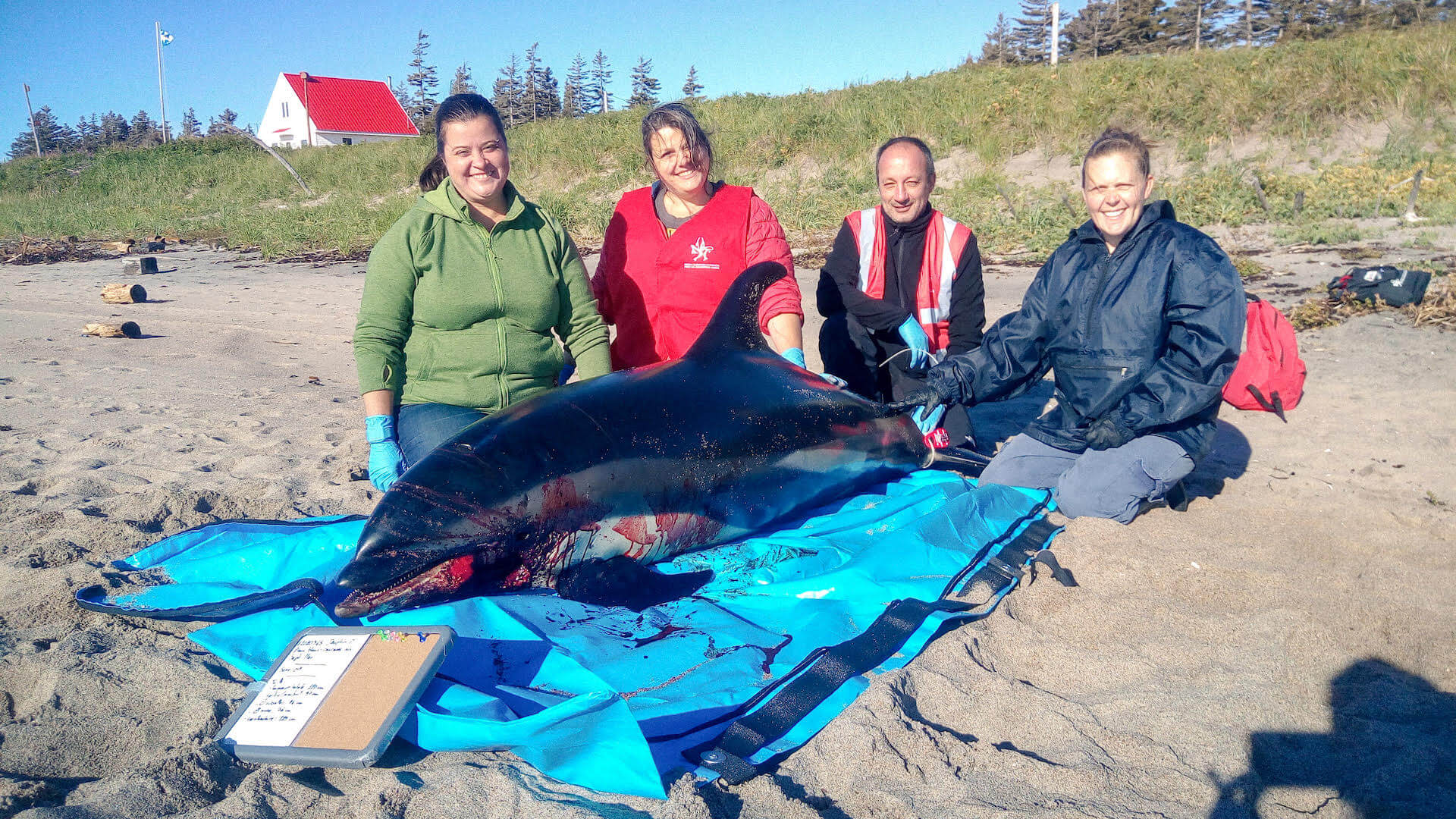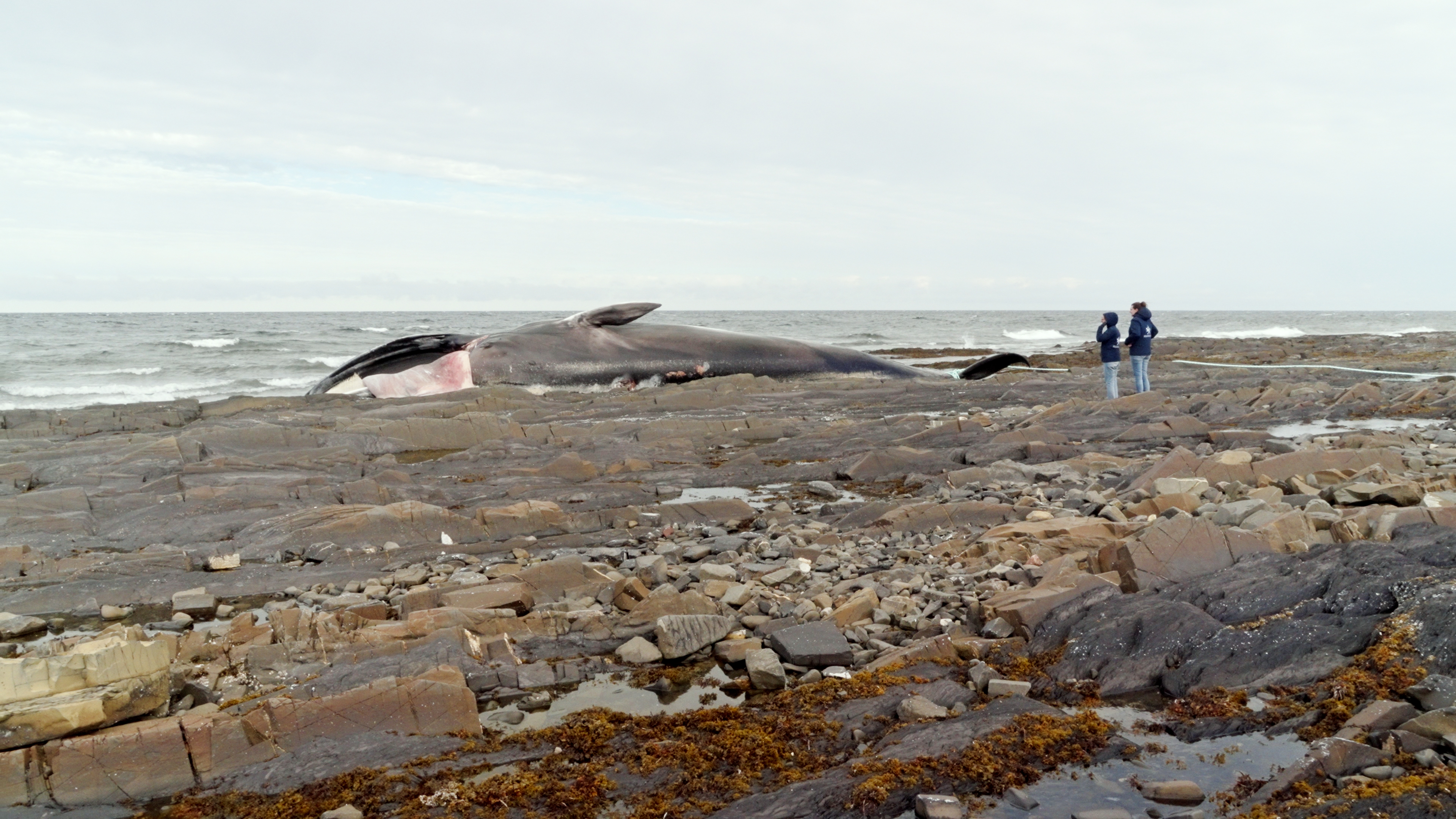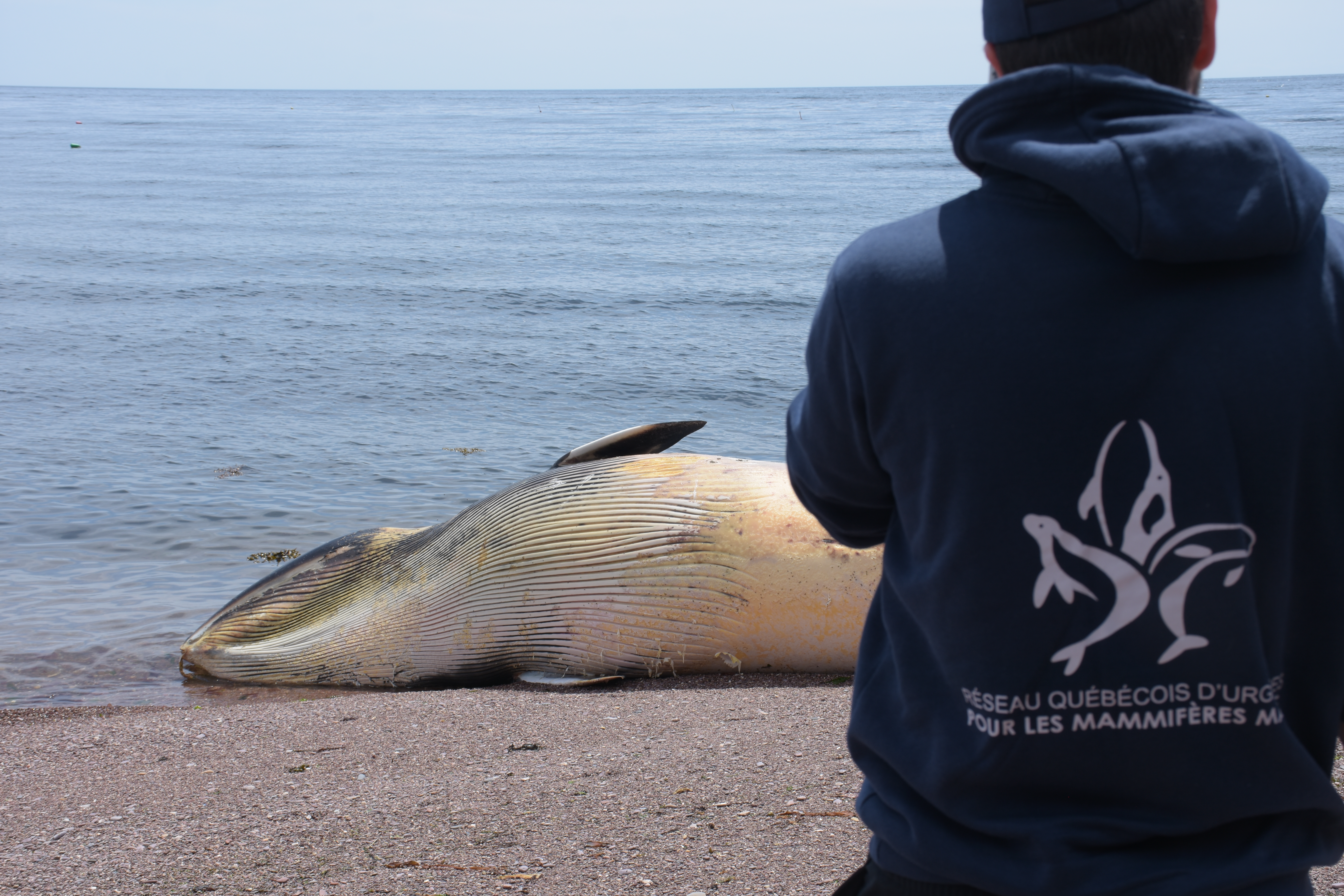Whether it is a whale, a porpoise or a dolphin that you find stranded on the beach or swimming in shallow water, dial 1-877-722-5346 without delay and notify the Quebec Marine Mammal Emergency Response Network! Although putting a small cetacean back in the water may seem like a simple action, there are several considerations to take before you act. Releasing an animal back into the sea poses a genuine danger both to the animal and to the humans who attempt to do so.
Well-intentioned individuals may wish to help the stranded animal by pushing or dragging it back into deeper water. However, such a response entails great risk both for humans and the animal. For example, a dolphin pulled by its tail could suffer damage to its spine or experience increased stress. Moreover, it has already occurred in the past that poorly thought out manoeuvres to free a porpoise resulted in the obstruction of the animal’s blowhole. To avoid improper interventions, only individuals with adequate training and permits should attempt to approach, handle or provide assistance to a marine mammal.
An evaluation by a veterinarian knowledgeable in the health of wild cetaceans should be performed prior to release. “Dolphins are particularly vulnerable when being released. You need special equipment and a good command of [release] techniques to do this,” confirms veterinarian and Network partner Stéphane Lair.
Before you act, you need to have an idea of why the animal ended up in this awkward position in the first place. A beached cetacean that is either emaciated or shows signs of disease will not be treated the same way as an individual stranded in shallow water at low tide.
Other external elements must also be taken into account such as weather conditions, tides and bathymetry (underwater relief). “A whale can breath and survive out of the water for quite a while. There is therefore sufficient time to contact 1-877-722-5346 to report the emergency. This is essential so that experts can make a decision that is in the best interest of the whale. Witnesses often have an intimate knowledge of the area, and the information they provide on the situation can be of great help,” points out Anthony François, who is responsible for the Network’s mobile teams.
Two recent strandings
Two dolphins were found stranded alive in a short period at different locations on the shores of the St. Lawrence. On November 21, an unknown species of dolphin ran aground in the Magdalen Islands before returning to sea on its own. Then, on December 3, a white-sided dolphin ran ashore near Carleton-sur-Mer. This animal quickly died. The white-sided dolphin was recovered by the Network’s mobile team and will be analyzed at the Université de Montréal’s Faculty of Veterinary Medicine to learn more about the circumstances of its death. Prior to the creation of the mobile team, recovery of the carcass would not have been possible.
Cetacean strandings are uncommon in the St. Lawrence. In 2020, ten cetaceans were found stranded alive, including different species of dolphins as well as harbour porpoises.


